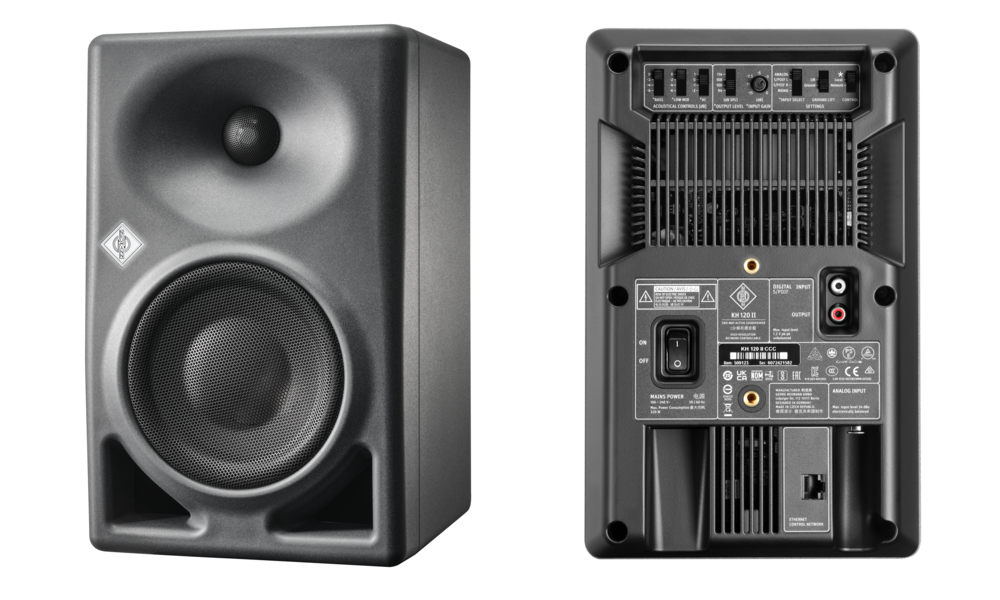Just wondering if anyone has experience using these speakers outside of the studio as a normal 2 channel setup. I currently run all digital sources through an RME ADI-2 PRO FS R with SPDIF out to two daisy-chained KH 120 II's.
The problem is that occaisionally the SPDIF L speaker will drop out for a second or two before coming back on. I don't think I've heard the R channel drop out yet. This happens when the source is COAX, Optical, or USB with the output from the RME over Coax SPDIF. So far it appears to be when the signal has been consistently "on" for a longer period of time such as watching a movie*. It happens during quiet parts OR during loud parts with volume of RME louder or quieter. It also varies as to how frequently it occurs - I watched a movie the other day and it happened only once from what I can tell, but one other day it happened at least 6 times while watching a show which is more than enough to be annoying.
I can't tell if the source of this issue is the RME or the Main KH 120 II.
1) I have also tried redbook via Coax/Optical into the RME and I haven't had it drop out yet, but I haven't played any songs longer than maybe 12 mins. I am going to run this test with an hour long song at some point.
2) I have also tested music via USB through the RME and haven't noticed a dropout, yet also haven't listened to a song longer than about 15 mins or so, will run that longer song test later as well. Edit: Had one or two dropouts after awhile on a shorter song over USB..
3) I have tried multiple Coax cables, all nice Belden 75 Ohm.
* Movie source was initially optical from TV>RME>KH 120.. but got dropouts and assumed it was the crappy optical port on my LG which is notoriously jittery and noisy. I then tested from my Nvidia Shield which supports USB out and also noticed it occuring this way. I have also noticed dropouts using the coax out on my blu-ray player or the coax/optical out from an HDMI extractor.
Tests I will be running:
A) Swapping L R switch on each speaker to verify it's only the L channel dropping out
B) Directly plugging in my CD player via coax to Master Neumann (although I am looking for a very quiet CD right now to avoid mega loud volume and the speaker shutting down)
C) Possibly using an AES to 75 ohm converter such as the Neutrik NADITBNC-F to see if using AES will be any different, but that might actually introduce more issues
Edit: I ended up swapping out one of the COAX cords for the other (with a newer Belden) and it works 99% of the time from my RME now.
The problem is that occaisionally the SPDIF L speaker will drop out for a second or two before coming back on. I don't think I've heard the R channel drop out yet. This happens when the source is COAX, Optical, or USB with the output from the RME over Coax SPDIF. So far it appears to be when the signal has been consistently "on" for a longer period of time such as watching a movie*. It happens during quiet parts OR during loud parts with volume of RME louder or quieter. It also varies as to how frequently it occurs - I watched a movie the other day and it happened only once from what I can tell, but one other day it happened at least 6 times while watching a show which is more than enough to be annoying.
I can't tell if the source of this issue is the RME or the Main KH 120 II.
1) I have also tried redbook via Coax/Optical into the RME and I haven't had it drop out yet, but I haven't played any songs longer than maybe 12 mins. I am going to run this test with an hour long song at some point.
2) I have also tested music via USB through the RME and haven't noticed a dropout, yet also haven't listened to a song longer than about 15 mins or so, will run that longer song test later as well. Edit: Had one or two dropouts after awhile on a shorter song over USB..
3) I have tried multiple Coax cables, all nice Belden 75 Ohm.
* Movie source was initially optical from TV>RME>KH 120.. but got dropouts and assumed it was the crappy optical port on my LG which is notoriously jittery and noisy. I then tested from my Nvidia Shield which supports USB out and also noticed it occuring this way. I have also noticed dropouts using the coax out on my blu-ray player or the coax/optical out from an HDMI extractor.
Tests I will be running:
A) Swapping L R switch on each speaker to verify it's only the L channel dropping out
B) Directly plugging in my CD player via coax to Master Neumann (although I am looking for a very quiet CD right now to avoid mega loud volume and the speaker shutting down)
C) Possibly using an AES to 75 ohm converter such as the Neutrik NADITBNC-F to see if using AES will be any different, but that might actually introduce more issues
Edit: I ended up swapping out one of the COAX cords for the other (with a newer Belden) and it works 99% of the time from my RME now.
Last edited:

